Review: Wormholes

Connect the galaxy one wormhole at a time and keep your passengers moving!
Designed by Peter McPherson and published by Alderac Entertainment Group
👤 1-5 players
🧩 Route Building, Pick-up, and Deliver
⚖️ Light
Overview
In a peaceful galaxy, a new technology has been invented: wormholes. They allow ships to warp from one point to another, which opens up countless possibilities for commerce and travel. As the captain of a passenger spaceship newly equipped with a wormhole fabricator, you can make some severe space bucks by building a robust network of wormholes. Link the farthest reaches of space while delivering passengers to become the most successful captain in this golden age of spacefaring. It’s time to bend space and go fast.
In Wormholes, players collect passengers from planets, each of whom has specific destinations they aim to reach. However, this pick-up-and-deliver process can be quite different once you establish wormholes between different points of the galaxy — and like any good business, your service can be used by other players...at the cost of a few points.
—description from the publisher
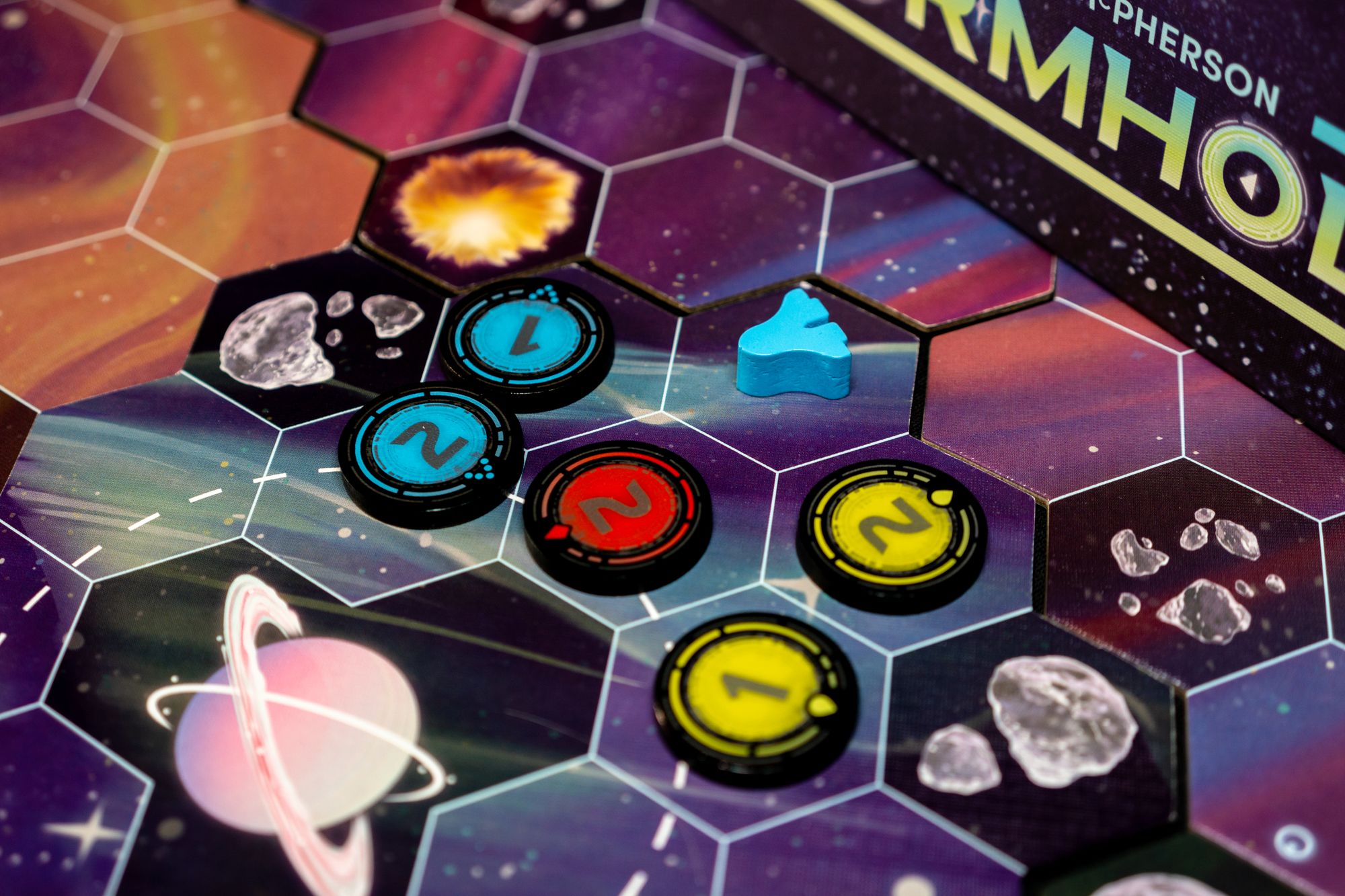
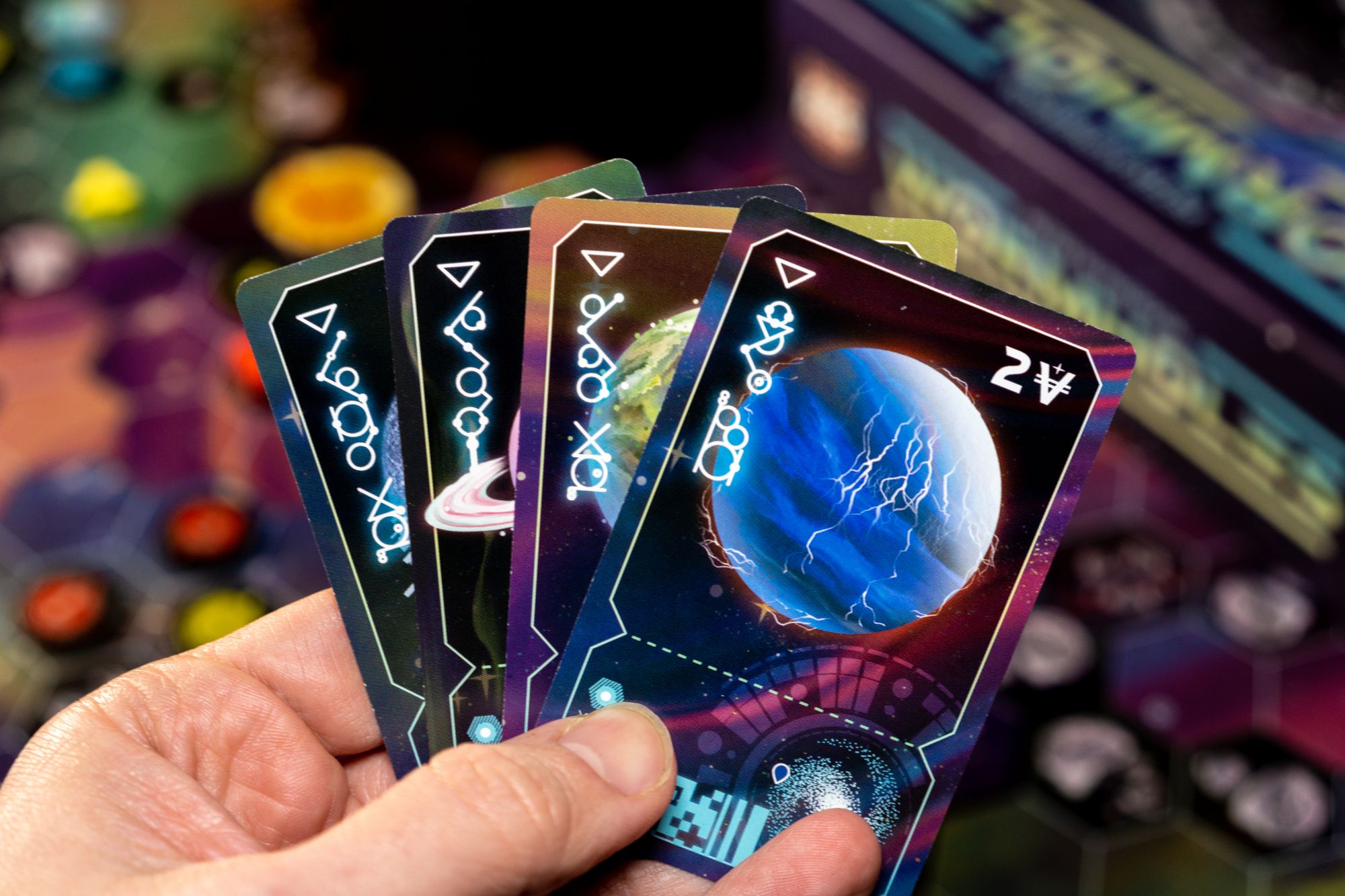
Gameplay
Players take turns in turn order. During their turn, they can use energy (each player has three energy to spend per turn) to move their spaceship to an adjacent space.
Besides moving, they can perform free actions. The first free action lets you place a wormhole token; if this is the second wormhole of that number, the wormhole becomes active. The second free action is to warp through an active wormhole. If this is an opponent's wormhole, they gain 1 point. The last free action players can perform during their turn is the drop-off passengers. To drop off a passenger, you must be adjacent to the planet shown on the passenger card.
Once per turn, players may pick up new passengers. If you pick up passengers from a planet, you refill your hand with up to 4 cards (drawn blindly from the deck). If you draw a passenger card that matches the planet you're picking up from, you need to discard it face-up in the Space Station Docks. Otherwise, you would be able to deliver that passenger immediately. When you pick up from the Space Station, you can choose face-up cards from the Space Station docks.
Once all planets have been connected (meaning: a wormhole placed next to it), the end game is activated. Play continues for three more rounds, after which final scores are calculated.
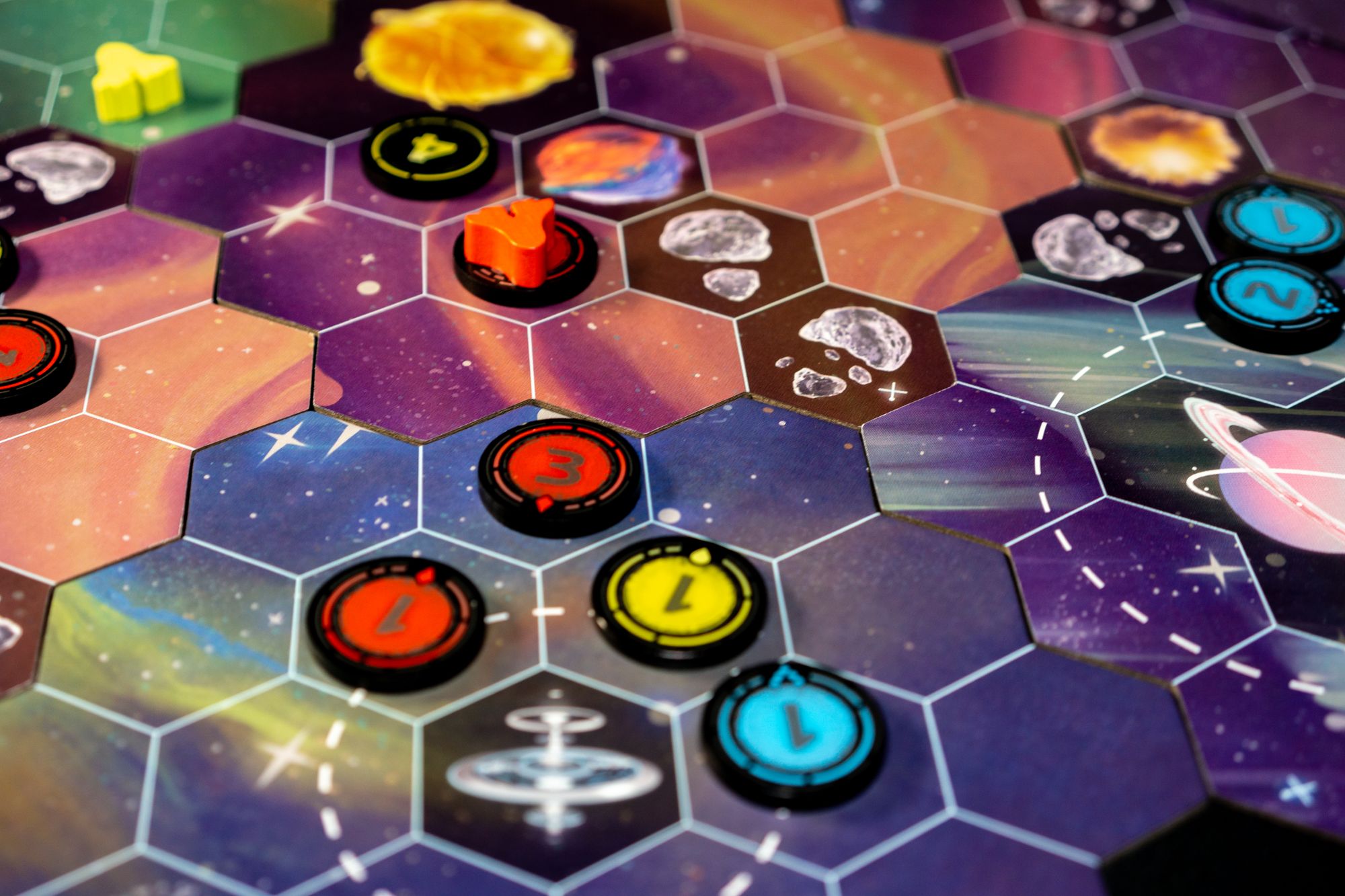
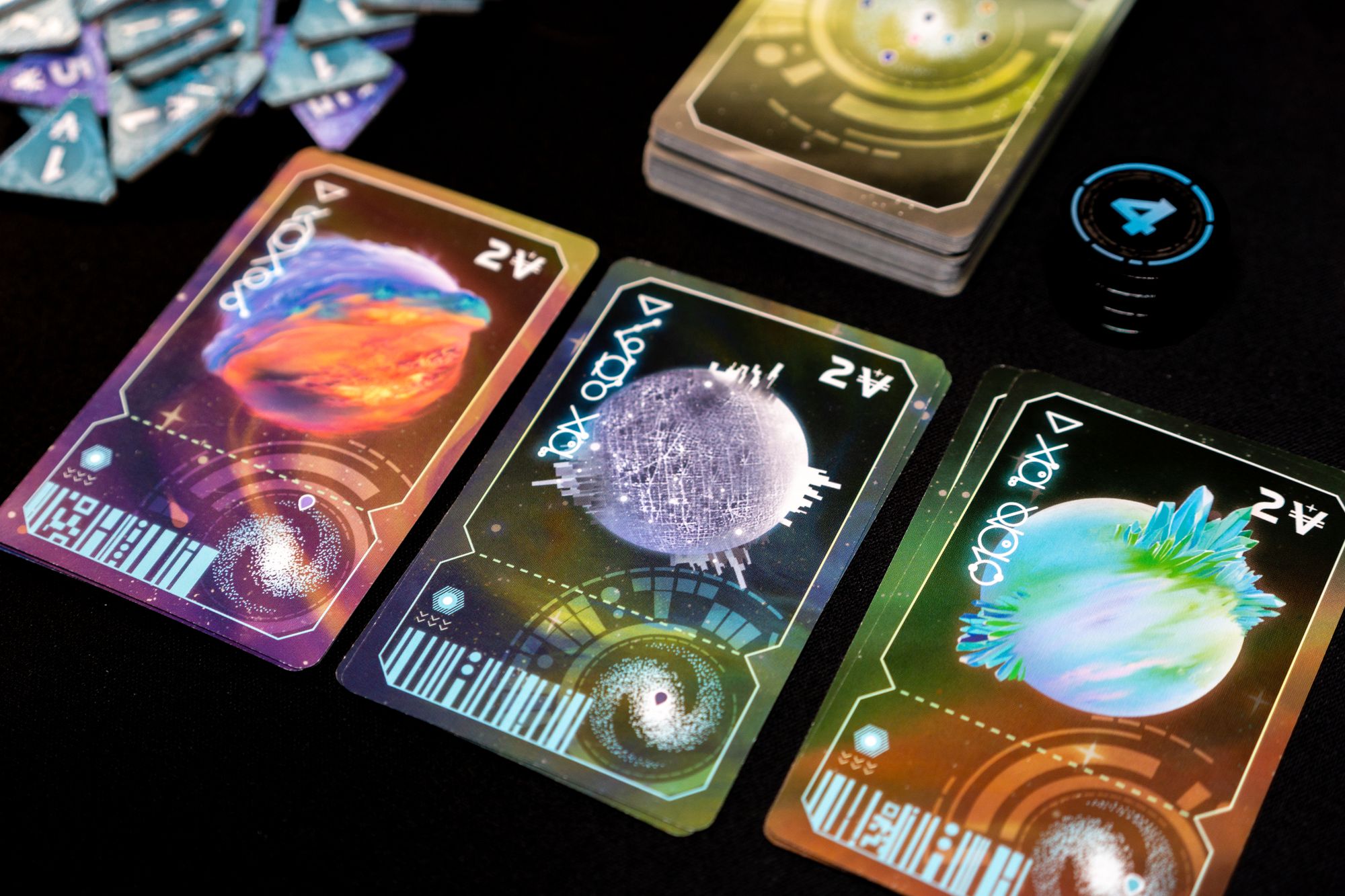
Thoughts
I don't have many pick-up and delivery games in my collection, and Wormholes is a pretty pure game in that genre. I have only played two games by designer Peter McPherson, with Tiny Towns being the first. It is always interesting to see if you can identify a designer's DNA in a game and I've found both games to be light, quick, and relaxing. With Tiny Towns and Wormholes, you probably struggle to understand how the simplest rules could offer an exciting and fun experience during your first game. Placing Wormholes inefficiently definitely happened during my first game and the first game of my opponents. But once you got that quick first game under your belt, you'll all say: ah, it is all starting to click now!
Wormholes is all about being efficient. With only three energy for movement, using the Wormholes is very important. Consider when to use your opponent's Wormholes or your energy to move. All these tiny decisions will play a big part in the number of passengers you can pick-up and deliver during the game.
Wormholes is a pick-up and delivery game, but you could also say it is a race. You try to achieve as much as possible before the game end. Besides delivering as many passengers as possible, you also try to diversify those passenger destinations, connect planets for the first time and build an efficient Wormhole network. Building a good network of Wormholes will make you and your opponents use it more, which grants you additional points. You can utilize map features, like Blackholes (like a teleport to a random location) and Orbit Rings (that can be traveled entirely with only one energy).
Another essential aspect is your hand management. When picking up passengers, you have to opportunity to discard cards and pick up new cards. You'll have to find a balance between passengers you can deliver quickly and passengers that want to go to a planet you haven't visited. At the end of the game, you'll gain additional points if you've delivered passengers to more than five planets.
The Artwork isn't the best I've ever seen, but it does the job of emerging you into space. The wormhole tokens have a glossy finish that is hard to read under certain lighting conditions; I would have preferred them without the glossy finish.
The game is very quick and plays well at the player counts I've played it on (1, 2, and 3 players). The solo mode is a bit more random and has less going on than a multiplayer game. I'm not a solo-player veteran, but I've enjoyed my solo game (if that tells you anything).
I started my thoughts with a comparison to Tiny Towns, as they share the same designer. Both games a fun family-weight games with plenty of decisions, but I think I prefer Tiny Towns because of its replayability. Replayability might be lacking with Wormholes after numerous plays as there isn't much variability between games (except for the randomized game board). You could have easily introduced some special player powers or made the passenger cards more interesting by giving them a one-time ability upon delivery or pick-up.
👍 Pick-up and delivery with a Wormhole twist
👍 Easy to learn but plenty of decisions
👍 Race against your opponents
➖ Artwork and components could've been better
➖ Lacks replayability after numerous plays
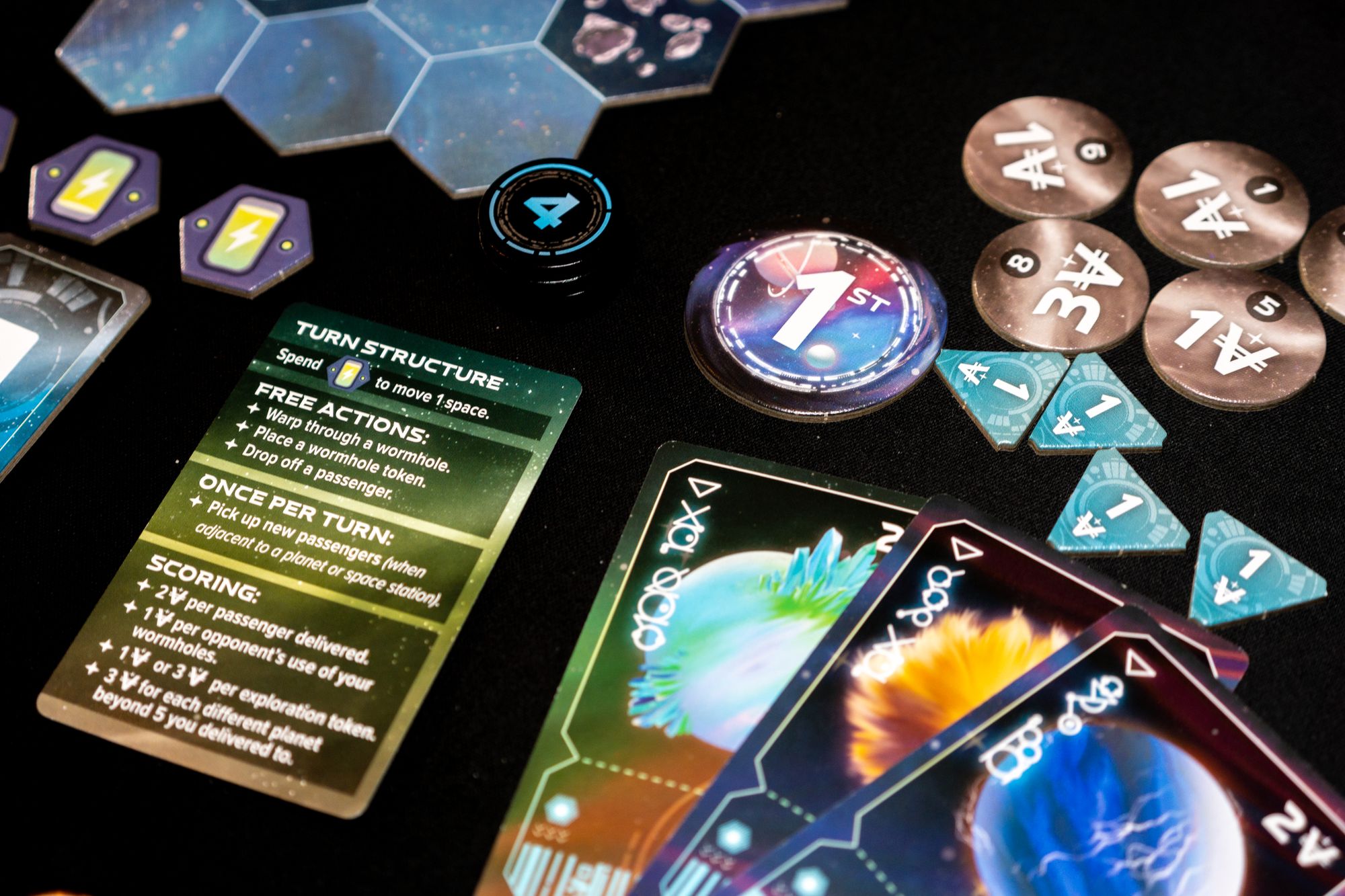
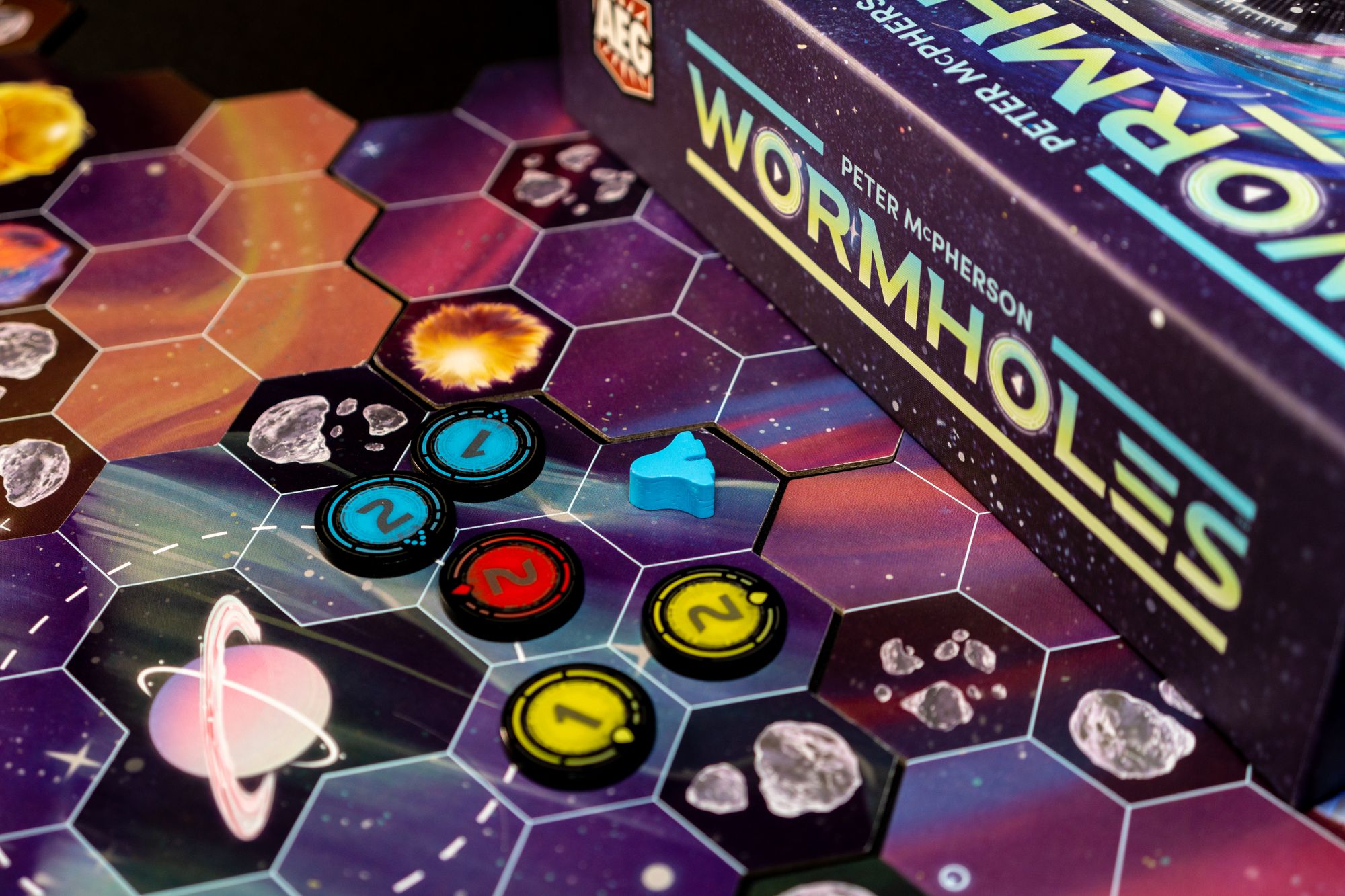
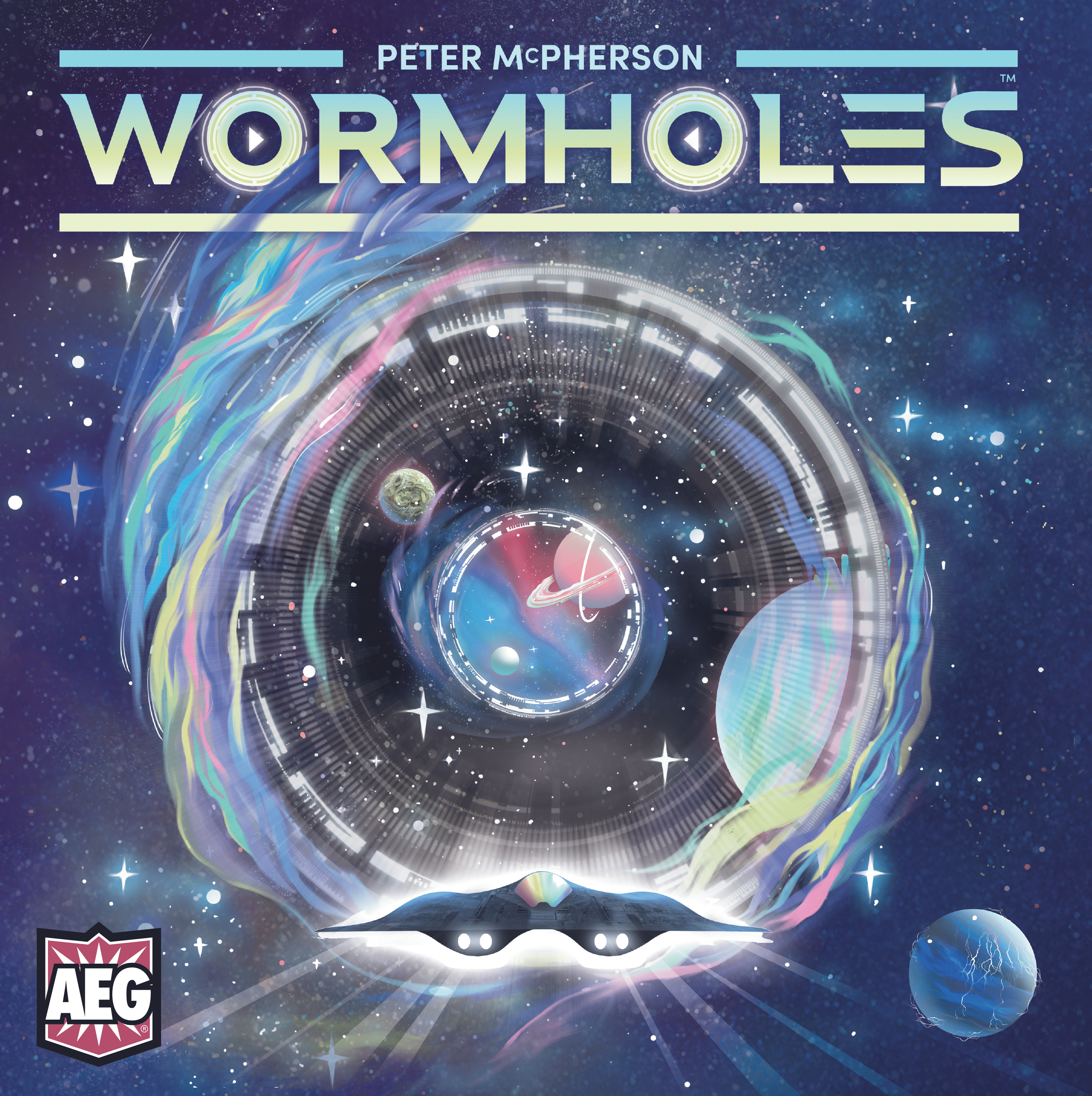
Wormholes
Wormholes achieved what it had set out to do. Create a family-weight pick-up and delivery game with accessible rules but plenty of decisions. The artwork and components could have been better, and I think some more variability could've been introduced. But overall, I've thoroughly enjoyed my plays and will present it to players as a fun gateway game.
Alternatives
Looking for alternatives or similar games? Have a look at Tiny Towns



